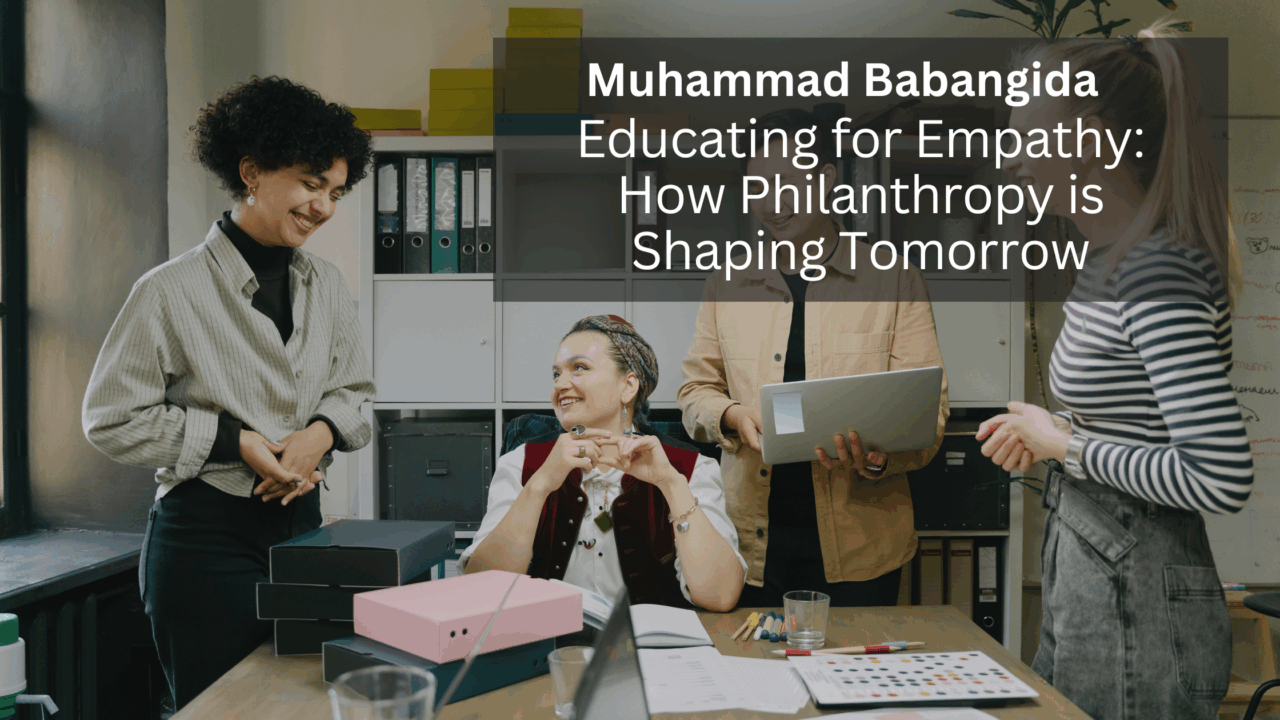In an increasingly complex and interconnected world, empathy has become one of the most valuable skills anyone can cultivate. Beyond academic knowledge or technical expertise, the ability to understand and respond to the needs and emotions of others shapes the kind of leaders, innovators, and citizens society will produce. Philanthropy, long associated with charitable donations, is now emerging as a powerful force in nurturing empathy—especially among younger generations. By funding education, community initiatives, and hands-on experiences, philanthropists are helping create a world where compassion and understanding drive action, not just rhetoric.
Philanthropy as a Tool for Empathy Education
Traditionally, philanthropy has focused on alleviating immediate needs: building schools, providing medical care, or supporting underprivileged communities. While these efforts remain crucial, a shift is happening. Donors and foundations increasingly recognize that the most transformative impact comes from fostering empathy, awareness, and social responsibility.
By integrating philanthropic support into educational programs, young people are exposed to challenges beyond their personal experience. These initiatives encourage them to see the world through the eyes of others—whether it’s learning about poverty, environmental crises, or cultural diversity. Such exposure doesn’t just create informed individuals; it cultivates compassionate decision-makers who are more likely to act responsibly in both personal and professional contexts.
Experiential Learning: From Awareness to Action
One of the most effective ways philanthropy shapes empathy is through experiential learning. Programs funded by charitable organizations often provide hands-on experiences—volunteering at local shelters, participating in community service projects, or engaging in cross-cultural exchanges.
These immersive opportunities help participants internalize lessons that textbooks alone cannot convey. When a student spends a day in a community different from their own, witnessing challenges firsthand, they develop a deeper understanding of societal inequities. They learn to appreciate diverse perspectives and recognize the importance of collaborative solutions.
Experiential learning also bridges the gap between awareness and action. Empathy is more than feeling—it is doing. By combining financial support with real-world experiences, philanthropists empower young people to translate understanding into meaningful contributions to society.
Schools and Curriculum Innovation
Philanthropy is increasingly supporting curriculum innovation aimed at fostering empathy. From social-emotional learning modules to ethics-focused programs, schools are experimenting with ways to nurture emotional intelligence alongside traditional subjects.
Programs funded by philanthropic organizations often integrate problem-solving exercises that encourage students to consider the impact of their decisions on others. Activities such as peer mentoring, collaborative projects, and civic engagement initiatives teach skills like active listening, conflict resolution, and cooperative leadership.
Furthermore, these programs emphasize inclusivity and diversity, helping students develop cultural competence—an essential aspect of empathy in today’s globalized world. By supporting schools in this way, philanthropy ensures that the next generation of leaders is not only knowledgeable but also socially conscious and emotionally intelligent.
The Ripple Effect of Empathy
Educating for empathy doesn’t just benefit the individuals directly involved—it creates a ripple effect. Students who develop empathy are more likely to participate in community service, advocate for social justice, and promote ethical practices in their workplaces. They influence peers, family members, and future colleagues, spreading compassion and social responsibility across networks and communities.
In this sense, philanthropic investment in empathy education has a multiplier effect. A single initiative—whether it’s a school program, a youth workshop, or a community-based project—can inspire countless acts of kindness and civic engagement, shaping not only the immediate participants but also the broader society.
Philanthropy as a Catalyst for Long-Term Change
The true power of philanthropy in fostering empathy lies in its long-term perspective. Unlike short-term aid, these initiatives focus on mindset and behavior, cultivating a generation that values understanding as much as achievement. By prioritizing empathy in educational and community programs, philanthropists are shaping a future where social cohesion, ethical leadership, and inclusive growth are central to progress.
In today’s world, where polarization, inequality, and environmental challenges dominate headlines, cultivating empathy is not optional—it is essential. Philanthropy, by providing resources, opportunities, and guidance, ensures that young people are prepared to navigate complexity with compassion and act as responsible global citizens.
Conclusion: Shaping Tomorrow, Today
Educating for empathy is a transformative approach that equips individuals to lead, innovate, and collaborate in ways that truly benefit society. Philanthropy plays a crucial role in this transformation, turning financial support into experiences, programs, and opportunities that nurture emotional intelligence and social responsibility.
By investing in empathy education, philanthropists are not only addressing immediate social needs—they are building the foundation for a more compassionate, connected, and resilient world. Tomorrow’s leaders, entrepreneurs, and citizens will be better prepared to solve challenges with care, creativity, and integrity, ensuring that progress is measured not only in achievement but in the positive impact we leave on others.
